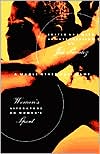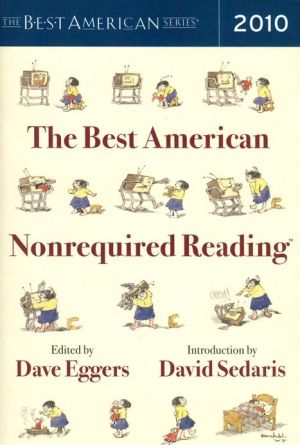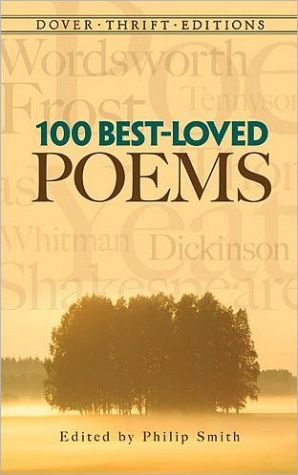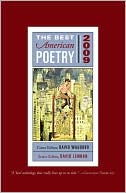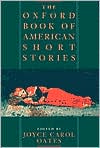A Whole Other Ball Game: Women's Literature on Women's Sport
Since the late 1800s, women have repeatedly proven their fitness for competitive sport...simply by playing the game. Any game. Off court and on; despite all opposition. A literary first, A Whole Other Ball Game deals with all aspects of women's competitive sports, from the thrill of winning before hometown fans to the interpersonal dynamics on a team. This engaging collection of short stories, poems, and novel excerpts tells the exciting story of women's sports from the sportswoman's own...
Search in google:
Since the late 1800s, women have repeatedly proven their fitness for competitive sport...simply by playing the game. Any game. Off court and on; despite all opposition. A literary first, A Whole Other Ball Game deals with all aspects of women's competitive sports, from the thrill of winning before hometown fans to the interpersonal dynamics on a team. This engaging collection of short stories, poems, and novel excerpts tells the exciting story of women's sports from the sportswoman's own point of view.Joli Sandoz has played, coached, and written about competitive athletics since her first plunge from the starting blocks in 1961. Her sporting credits include working as the first woman track coach at Harvard. She teaches American Studies at The Evergreen State College in Olympia, Washington.Kirkus ReviewsAmerican women, editor Sandoz observes, have long had a "fierce love of sport": In 1866, Vassar College already fielded two women's baseball teams. That love, based on the evidence of these mostly contemporary stories, poems, and novel excerpts, has produced some energetic, thoughtful explorations of the liberating possibilities of sport for women. Many of the pieces here deal with the struggles of women—especially adolescents—trying to accept that competition is good, that winning is even better, and that it's possible to be both a woman and an athlete without slighting either. Stephanie Grant's story "Posting-Up" offers a tough- minded description of the manner in which her adolescent narrator discovers the exhilaration of playing basketball well and aggressively. "Scotti Scores," by Jane Gilliland, carries the idea a step further, exploring how the members of a high-school hockey team astonish themselves and their coach by cooperating to outplay a far more experienced team. Stories by Laurie Colwin, Ellen Gilchrist, Sara Maitland, and Jennifer Levin are particularly strong, as are the excerpts from novels by Carol Anshaw and Sara Vogan. Some tales suffer from seeming too programmatic, too thin and message-laden. But, overall, a useful introduction to an overlooked area in contemporary fiction and poetry.
The SpringboardIntroduction3Raymond's Run1974th Street30Posting-Up31Poem for My Youth/Poem for Young Women60From Lady Lobo61Sports Field68From All The Way Home70Morning Athletes74Competition76October 1968, Mexico City (From Aquamarine)77From "Candy Butcher"81The Lady Pitcher85Revenge87To Throw Like a Boy104When I Am 98106Atalanta in Cape Fair109Women's Tug of War at Lough Arrow123Wet124From Water Dancer134Joan Benoit: 1984 Olympic Marathon Gold Medalist157The Loveliness of the Long-Distance Runner159To Swim, To Believe170Teamwork172From "First Peace"189Sweat191Diamonds, Dykes, and Double Plays197A Night Game in Menomonie Park211From In the Year of the Boar and Jackie Robinson213Lindy Lowe at Bat221Double Play233From In Shelly's Leg234Hotshot239Most Valuable Player255A Golf Lullaby257Two Champions in the Family258The Pregnant Lady Playing Tennis264Scotti Scores266Skating After School276Revenge278Her Marathon293Contributor Notes313Permissions319Acknowledgments323
\ From the Publisher"A Whole Other Ball Game shares wonderful stories that reveal the 'inherent truths' of women's sport from the 1890s to the present—strength, courage, commitment, and passion."—Donna Lopiano, Executive Director, Women's Sport Foundation \ "A ground-breaking anthology, full of surprises. Joli Sandoz adds writers of the stature of Adrienne Rich, Toni Cade Bambara, and Ellen Gilchrist to the canon of sports literature, while also bringing talented unknowns before a wider public for the first time."—Michael Oriard, Former Center for the Kansas City Chiefs; Author of Dreaming of Heroes: American Sports Fiction, 1968-1980\ "Energetic, thoughtful explorations of the liberating possibilities of sport for women. Many of the pieces here deal with the struggles of women—especially adolescents—trying to accept that competition is good, that winning is even better, and that it's possible to be both a woman and an athlete without slighting either."—Kirkus Reviews\ "This book offers insight into the meaning of the sport experience through the voices of women. A 'women's way of sport' emerges here."—Carole A. Oglesby, Ph.D., Department of Physical Education, Temple University\ \ \ \ \ \ Kirkus ReviewsAmerican women, editor Sandoz observes, have long had a "fierce love of sport": In 1866, Vassar College already fielded two women's baseball teams. That love, based on the evidence of these mostly contemporary stories, poems, and novel excerpts, has produced some energetic, thoughtful explorations of the liberating possibilities of sport for women. Many of the pieces here deal with the struggles of women—especially adolescents—trying to accept that competition is good, that winning is even better, and that it's possible to be both a woman and an athlete without slighting either. Stephanie Grant's story "Posting-Up" offers a tough- minded description of the manner in which her adolescent narrator discovers the exhilaration of playing basketball well and aggressively. "Scotti Scores," by Jane Gilliland, carries the idea a step further, exploring how the members of a high-school hockey team astonish themselves and their coach by cooperating to outplay a far more experienced team. Stories by Laurie Colwin, Ellen Gilchrist, Sara Maitland, and Jennifer Levin are particularly strong, as are the excerpts from novels by Carol Anshaw and Sara Vogan. Some tales suffer from seeming too programmatic, too thin and message-laden. But, overall, a useful introduction to an overlooked area in contemporary fiction and poetry.\ \
